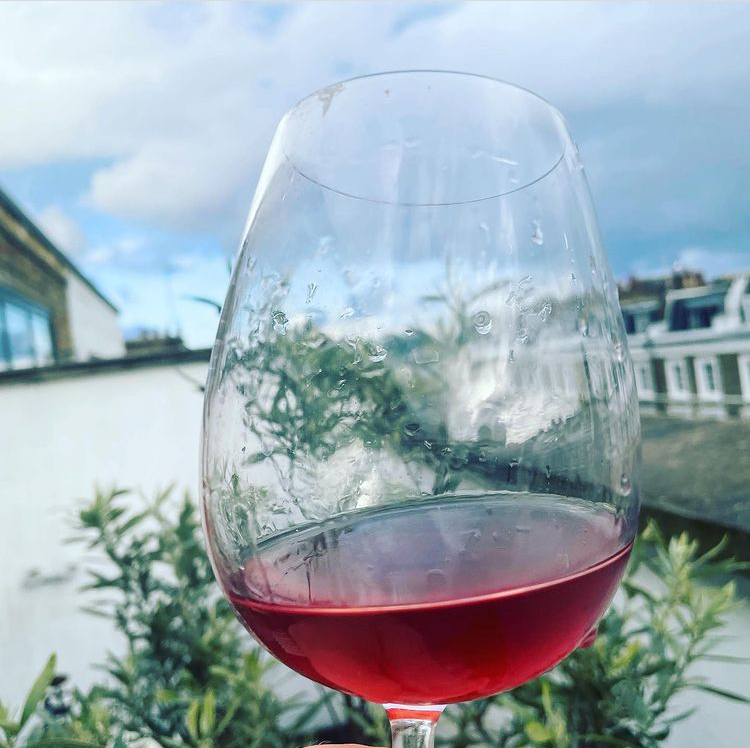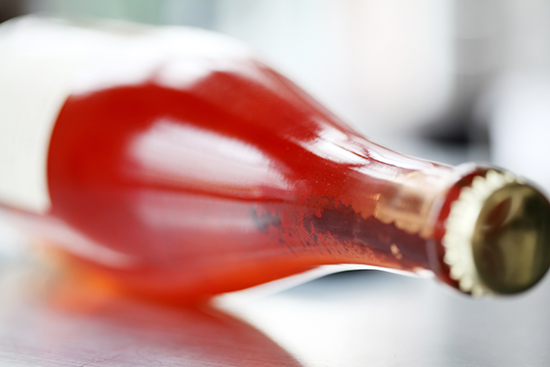
Statement: Whereas the vast majority of wines that are sold are technically correct as far as a faults-analysis panel might determine, they are also pretty boring to drink.
With the battery of modern technology at one’s disposal, one would have to try hard to make bad wine. A wine that is tolerable, competent or accurate, is not something however that is likely ever to be delicious. Not being a technical term, and indeed something that sounds suspiciously sensual, deliciousness describes the quality of delightfulness, a quality of effortless drinkability yielding great pleasure.
The oenological corrective actions taken to refine wine and improve its flavour are intended to make wine appeal specifically to certain markets. Its virtue being consistency, industrial wine is therefore heavily filtered, clean and homogeneous.
What are the wines we like to drink? Displaying lightness and purity of the fruit and exalted levels of acidity, these were nutritious wines that skated lightly and brightly across the palate as opposed to the mesomorphic, lignified, indigestible specimens designed to acquire trinkets at tastings. In an age where wines were naturally reaching high levels of alcohol, we were discovering that some wines could be lean, fresh, mineral and utterly satisfying, and that certain growers, by using plot-by-plot knowledge of their vineyards and by having an acute awareness of their diverse microclimatic subtleties, could produce gentle, restrained, expressive wines no matter how difficult the vintage. The true grower was also one who would restrict or eliminate invasive interventions in the winery and we increasingly identified with vignerons who would use oak sparingly (or not at all).
Wines that appeal to us have to be well-made, earthy, mineral, not necessarily commercial, yet certainly more-ish, sapid, refreshing, digestible, and capable of accompanying food.
What is deliciousness? Can one quantify something that is essentially impressionistic, a subjective sensation? It is oft said that the best bottle of wine is the empty bottle… Delicious wine is instantly appealing, encourages us to unfurl our tongues and encourage the flavours silkily slide across our palates without analysis, what the French call gouleyant – easy to drink, quaffable. We could appreciate the following quote from Steppenwolf: “I am not fond, for everyday at least, of racy, heady wines that diffuse a potent charm and have their own particular flavour. What I like best is a clean, light, modest country vintage of no special name. One can carry plenty of it and it has a good and homely flavour of the land, and of the earth and sky and woods”.
Wines that appeal to us have to be well-made, earthy, mineral, not necessarily commercial, yet certainly more-ish, sapid, refreshing, digestible, and capable of accompanying food. A wine should offer pleasure from the first sniff to the draining of the final dregs, although that pleasure may evolve according to the complexity of the liquid in the glass. The pleasure, of course, is personal. We each bring something to what is there in the glass and interpret the result differently. Over-analysis is invidious in that you frequently end up criticising a wine for what it is not, rather than accepting it for what it is.
In the wine trade we seem to be in thrall to notions of correctness. We even say things like: “That is a perfectly correct Sauvignon”. Criticism like this becomes an end in itself; we are not responding to the wine per se, but to a platonic notion of correctness. The quality of faultlessness. This is the zero-defect culture which ignores the “deliciousness” of the wine. We cannot see the whole for deconstructing the minutiae, and we lose respect for the real wine. We never mention enjoyment, so we neglect enjoyment. This reminds me of the American fad for highbrow literary criticism, imbued with a sense of its own importance. Wine is as a poem written for the pleasure of others, not a textual conundrum to be unpicked in a corridor of mirrors in the halls of academia. If the path be beautiful, let us not ask where it leads.
To return to our headline statement. There is nothing wrong with a technically-correct, fault-free wine. To view wine as the aggregate of correct interventions is to put it in a hygienic box. Something that can be easily described and circumscribed. One should not ignore that wine is capable of inspiring so much more. The best examples have an ineffable quality, a freedom, an energy, a life – call it what you will – that elevate them to another level, and that gives a pleasure that is difficult to put into words.


